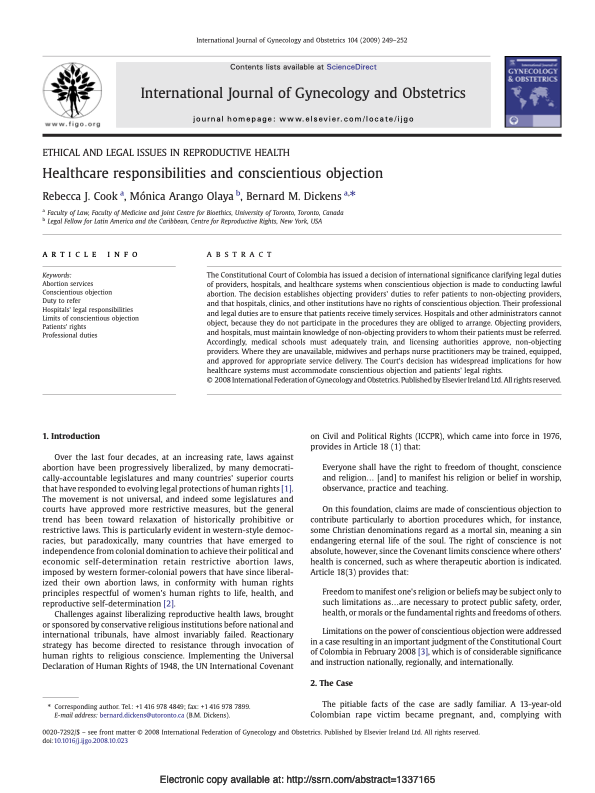Two concepts of conscience and their implications for conscience-based refusal in Healthcare
Publicación
Idioma
Autoría
Resumen
The Constitutional Court of Colombia has issued a decision of international significance clarifying legal duties of providers, hospitals, and healthcare systems when conscientious objection is made to conducting lawful abortion. The decision establishes objecting providers’ duties to refer patients to non-objecting providers, and that hospitals, clinics, and other institutions have no rights of conscientious objection. Their professional and legal duties are to ensure that patients receive timely services. Hospitals and other administrators cannot object, because they do not participate in the procedures they are obliged to arrange. Objecting providers, and hospitals, must maintain knowledge of non-objecting providers to whom their patients must be referred. Accordingly, medical schools must adequately train, and licensing authorities approve, non-objecting providers. Where they are unavailable, midwives and perhaps nurse practitioners may be trained, equipped, and approved for appropriate service delivery. The Court’s decision has widespread implications for how healthcare systems must accommodate conscientious objection and patients’ legal rights.

